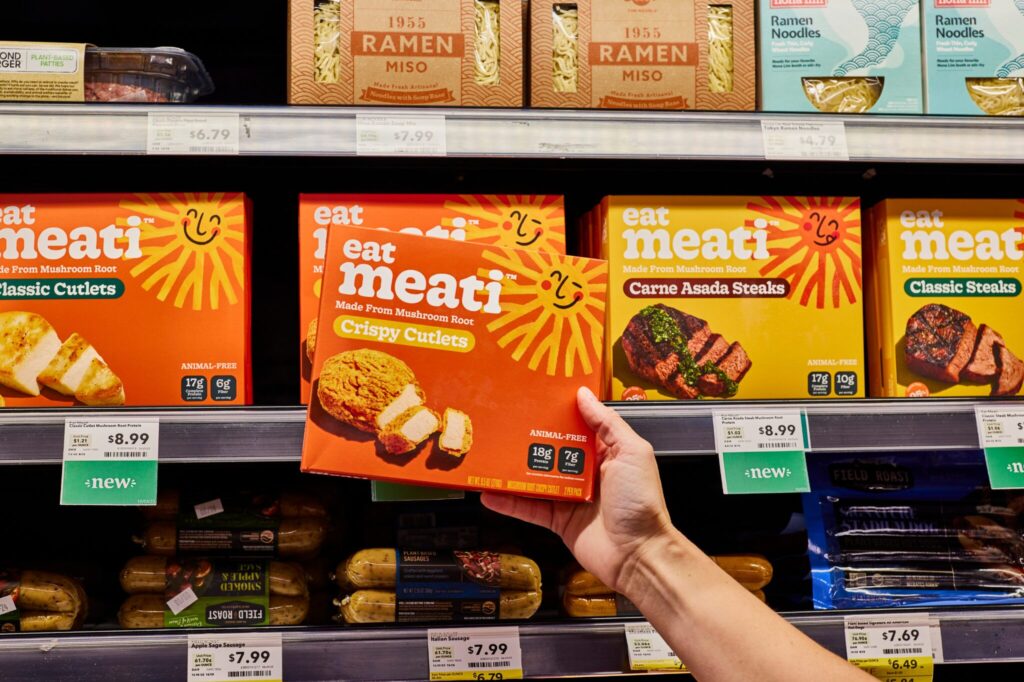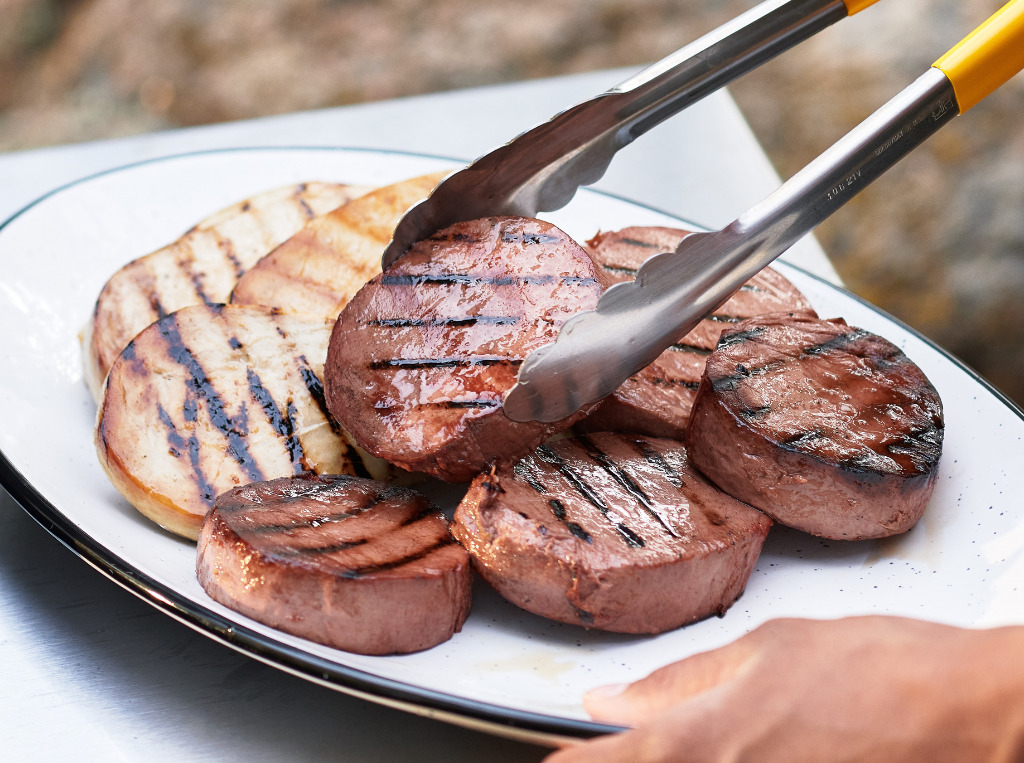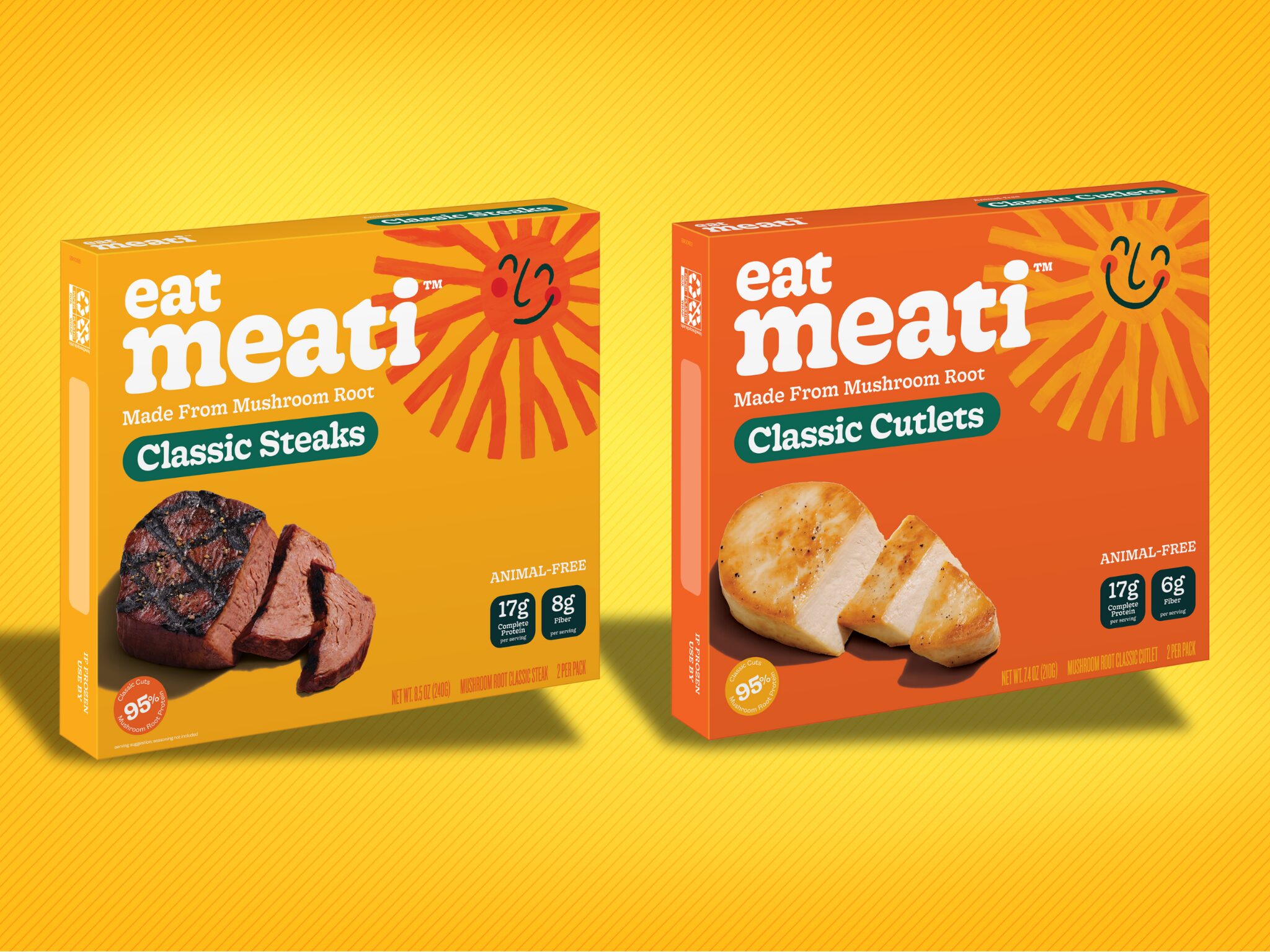Mycelium Meat: Meati’s ‘Mushroom Root’ Claim Hit with False Advertising Lawsuit by Consumers
4 Mins Read
Colorado-based food tech startup Meati has been accused of false advertising over its use of ‘mushroom root’ in a class-action lawsuit.
Weeks after concluding a lengthy court battle with The Better Meat Co, mycelium meat producer Meati is once again in legal hot water.
As reported by AgFunderNews, who broke the story, the Colorado-based startup has been hit with a class-action lawsuit alleging it has falsely marketed its mycelium-based steak and chicken analogues as ‘made from mushroom root’.
“Meati products are not made from mushroom roots, nor are they made from any part of a mushroom. Specifically, the main ingredient in Meati products is Neurosporo Crassa, a red mould that commonly grows on bread,” plaintiff Serena Caldeira claims in the complaint filed in the Eastern District of California.
Caldeira alleges that “consuming high concentrations of mould can cause severe allergic reactions in members of the consuming public and can potentially lead to death”. But the complaint doesn’t provide evidence that Meati’s fungus strain is associated with any allergies or food safety issues.
Meati moving away from ‘mushroom root’

In a blog post on its website, Meati explains mycelium as a “bundle of fungi filaments” that “underpin mushrooms”. “Not all mycelia are the same. There are countless species and strains within the fungi kingdom. Some produce fruiting bodies, which we all know as mushrooms. Some produce mycotoxins to help them counter threats they might find in their environment. Meati’s mycelium does not make either,” the company says.
But in the complaint, Caldeira claims Meati’s internal research shows that “consumers would not purchase its products if Meati disclosed its products’ main ingredient is mould, and/or customers would not pay the higher prices that Meati charges for its products if this fact were disclosed”.
In 2016, mycoprotein giant Quorn Foods faced a similar class-action lawsuit, in which it was accused of misleading consumers by suggesting its meat analogues were “substantially similar to a mushroom”, when in fact they were made from a fungus strain called Fusarium Venenatum.
Quorn settled that suit and agreed to add disclosures on labels to state that mycoprotein is a “mould member of the fungi family”, and that there had been “rare cases of allergic reactions to products that contain mycoprotein”.
But Caldeira says Meati’s “deceptive conduct” is “far worse” than the Quorn issue, since it is “falsely stating, not just implying, that its products are made from mushrooms, and it is doing so on the front of every package”.
“If defendants had accurately disclosed that Meati products were made of mould and were not made from any part of a mushroom, the market value of those products would be substantially less than the prices paid by plaintiff and the [proposed] California class,” she says.
“Over the past few months, we’ve been moving towards calling Meati exactly what it is – mycelium – out of a spirit of simplicity and transparency. Consumers are savvy, and even though they might not have heard of mycelium in the past, we believe that once they taste and understand its health benefits, they’ll adopt the new language,” a Meati spokesperson said.
“Mycelium is a powerhouse; it’s a great nutritious product that meat eaters, vegetarians and vegans alike can enjoy.”
No GRAS notice by Meati yet

Meati hasn’t submitted a Generally Recognized as Safe (GRAS) notice outlining allergen data for its fungal strain to the Food and Drug Administration. But The Better Meat Co – which also uses a strain of Neurospora Crassa – recently received a ‘no questions’ letter from the FDA for its Rhiza mycoprotein.
“N. Crassa is akin to other common fungi in the human diet. The long history of safe consumption of Neurospora as food in other countries serves as corroboration of the GRAS position based on scientific procedures,” the notice stated.
“No evidence was identified which suggests that proteins from N. Crassa represent any risk to consumers that is not matched by the equal low-level identity matches from widely diverse taxa of divergent organisms.”
The Better Meat Co had been embroiled in a legal battle with Meati since December 2021, which stemmed from the fact that the investor listed on the former’s patent had previously spent a year working on a Department of Energy fellowship at Chicago’s Argonne National Laboratory, at the same time Meati (then called Emergy and working on renewable batteries) was doing work at the agency too.
The Better Meat Co had sued Meati for undermining its IP and attempting to “bully” a less-funded rival. Meati responded by accusing the former of stealing its IP. But last month, a judge in California’s Eastern District ruled largely in favour of The Better Meat Co, reprimanding Meati for using “sandbagging” tactics and “shenanigans”, including serving The Better Meat Co with nearly 3,000 pages of documents the night before a hearing on May 17.
The company was founded in 2015 by Tyler Huggins and Justin Whiteley, and has raised $365M in venture capital to date, including a $100M Series C1 round just last month. The company’s chicken cutlets and steaks are now available in more than 6,000 retail locations, and it’s aiming to expand to 10,000 stores by the end of the year.



